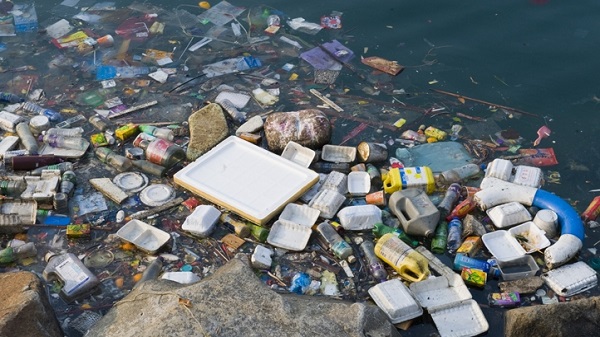
United Nations Secretary-General Antonio Guterres said, “Pollution, overfishing and the effects of climate change are severely damaging the health of our oceans. According to one recent study, plastic could outweigh fish — if nothing happens — in our seas by 2050.”
By Pam Wright (The Weather Channel) |
Plastics dumped into the world’s oceans may outweigh fish by the year 2050, United Nations Secretary-General Antonio Guterres said Monday (June 5) during the opening remarks of the first-ever U.N. Ocean Conference, citing a recent study.
In his speech, Guterres issued dire warnings on the state of the world’s oceans, saying they are “under threat as never before.”
“Pollution, overfishing and the effects of climate change are severely damaging the health of our oceans,” he said. “According to one recent study, plastic could outweigh fish — if nothing happens — in our seas by 2050.”
Representatives of nearly 200 countries convened at the U.N. Headquarters in New York City for the five-day conference that also marked World Environment Day on Monday.
According to a press release, Guterres told attendees that oceans, which are “the lifeblood of our planet,” are being severely damaged and noted the aim of the conference is “to turn the tide” and solve the problems that “we created.”
Coming less than a week after U.S. President Donald Trump announced the U.S. pullout from the Paris Climate Accord, Guterres stressed “the problems of the ocean — all created by human activity, can all be reversed and prevented with decisive, coordinated action,” adding that competing interests over territory and natural resources have no place in the fight to save the health of the world’s oceans.
“Oceans are a testing ground for the principle of multilateralism,” he said. “The health of our oceans and seas requires us to put aside short-term national gain to avoid long-term global catastrophe.”
“Conserving our oceans and using them sustainably is preserving life itself,” he added.
Continue reading this story at The Weather Channel
——
See also:
- Heineken Ethiopia Establishes Largest Water Treatment Plant Kilinto Town
- Ethiopia: AAU’s Center for Environmental Sciences and Canadian Embassy Stage Dialogues on Climate Change
